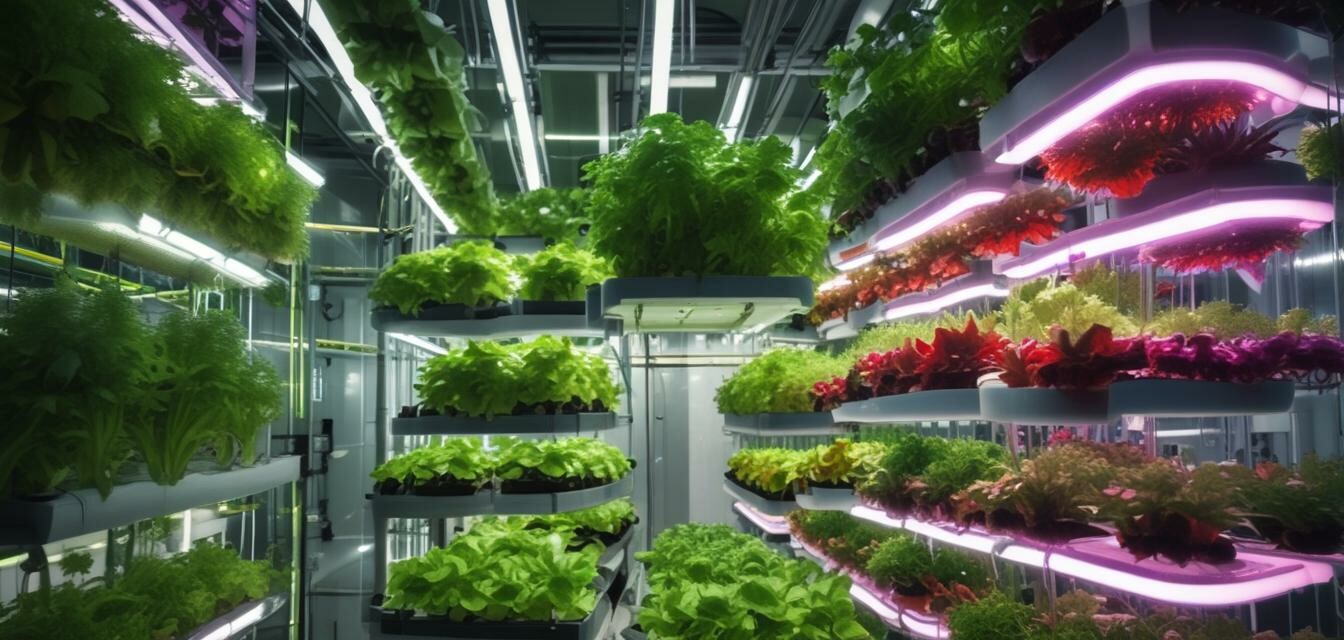
Hydroponics and sustainability: The future of urban farming
Key Takeaways
- Hydroponics reduces the need for soil, using water-based solutions to grow plants efficiently.
- Urban areas can benefit greatly from hydroponic systems by using limited space to produce fresh foods.
- Sustainable practices in hydroponics contribute to environmental conservation and resource management.
- Implementing hydroponics provides economic opportunities through local food production.
- The use of advanced technologies improves crop yields and reduces waste.
Urban farming is evolving, and at the forefront of this movement is hydroponics. In cities worldwide, limited space and resources make traditional agriculture challenging. Hydroponics emerges as a groundbreaking solution that not only addresses these challenges but also aligns with sustainable living practices. This article will explore how hydroponic systems are leading the way towards sustainable urban farming.
What is Hydroponics?
Hydroponics is a method of growing plants without soil, using nutrient-rich water instead. This innovative approach allows for more control over the growing process and can lead to higher yields in smaller spaces. Here are some key benefits of hydroponic systems:
- Space Efficiency: Hydroponics makes use of vertical space, fitting into urban settings.
- Water Conservation: Less water is used compared to traditional soil gardening.
- Reduced Pest Problems: The absence of soil often leads to fewer soil-borne pests and diseases.
Hydroponics and Sustainable Practices
Sustainability in agriculture is more important than ever, especially in urban environments. Hydroponics contributes to sustainability in several ways:
- Resource Management: Hydroponics requires fewer resources like water and land compared to traditional farming.
- Reduced Ecological Footprint: Local production decreases the carbon footprint associated with transportation.
- Waste Reduction: Advanced systems can recycle water and nutrients effectively.
Hydroponics in Urban Landscapes
Cities are adopting hydroponic systems in various forms, whether in dedicated rooftop gardens, community centers, or even commercial enterprises. Some of the most successful applications include:
| Hydroponic Application | Description | Benefits |
|---|---|---|
| Rooftop Gardens | Utilizing building rooftops to create large hydroponic farms. | Maximizes limited urban space; provides fresh produce to local communities. |
| Community Programs | Engaging community members in learning and growing through hydroponics. | Fosters community involvement; educates about sustainable practices. |
| Commercial Hydroponics | Businesses focusing on urban hydroponic farming. | Creates jobs; supplies fresh produce to local markets. |
Technology Innovations in Hydroponics
Technological advancements are propelling hydroponics into the future. Some key innovations include:
- Automated Nutrient Delivery: Systems that automatically adjust nutrient levels for optimal growth.
- LED Lighting: Energy-efficient lighting that mimics sunlight and promotes plant growth.
- IoT Integration: Smart hydroponic systems that allow for remote monitoring of plants.
Challenges Faced by Hydroponics
While hydroponics presents promising opportunities, there are challenges to overcome. Some common issues include:
Pros
- High yield production in constrained spaces
- Fast growth rates for various crops
- Reduced need for chemical pesticides
Cons
- Initial setup costs can be high
- Technical knowledge is required for maintenance
- Dependence on electricity; outages can disrupt growth
The Economic Impact of Hydroponics
Hydroponics can significantly impact local economies. By providing fresh produce within cities, it reduces food transportation costs and opens up numerous business opportunities. Local food production also allows for faster reactions to market demands and promotes food security.
Future Trends in Hydroponics
As technology continues to advance, the future of hydroponics looks promising. Expect to see:
- Increased adoption of urban farming technologies.
- More decentralized food production systems.
- Innovative designs that incorporate hydroponics into everyday life.
Summary
Hydroponics represents a significant step towards sustainable urban agriculture. Its ability to provide fresh produce in limited spaces, reduce waste, and conserve resources makes it an attractive solution for cities. As we continue to embrace innovative agricultural practices, hydroponics is set to play a crucial role in shaping the future of food production.
Learn More
For those interested in exploring hydroponics further, consider these resources:
- Countertop Hydroponic Kits - Great for beginners!
- Environmental Control Equipment - Essential for optimized growing conditions.
- Buying Guides - Navigate your hydroponic journey with ease.
- Growing Techniques - Master effective methods for hydroponic success.